The session will examine the landscape of international anti-corruption and business integrity standards, such as the OECD Anti-Bribery Convention and its 2021 Anti-Bribery Recommendation, the OECD Recommendation on Public Integrity, and the Multilateral Development Bank General Principles for Business Integrity Programmes.

Head of the Anti-Corruption Division
OECD

Team Lead, Anti-Corruption Hub for Southeast Asia and the Pacific
UNODC

Advisor Office of Head
Asian Development Bank

Senior Manager
Organisation for Economic Co-operation and Development

Assistant Director
Corrupt Practices Investigation Bureau
In developing a clean business environment, assessing risks related to business integrity is crucial. This session will discuss integrity risk assessment, particularly in areas such as international business transactions, public procurement, and state-owned enterprises.

Head of Anti-Corruption and Integrity in Government Division
Directorate for Public Governance, OECD

Resident Representative and Senior Economist for Bhutan
World Bank Country Office

Country Director, Asia Regional Office in the Philippines
Center for International Private Enterprise
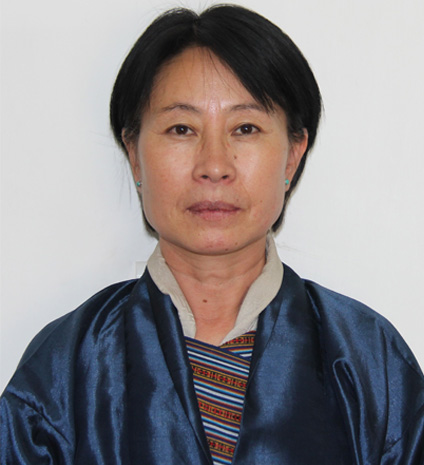
Hon'ble Secretary
Ministry of Industry, Commerce and Employment

President
Construction Association of Bhutan

CEO
Druk Holding and Investments
This session will discuss practical policy instruments and implementation mechanisms that effectively support business integrity through robust policy tools and mechanisms.
Discussions will focus on implementing ethical standards such as anti-corruption compliance programmes or measures (especially for SMEs), codes of conduct, establishing comprehensive internal control systems, implementing whistleblower protection mechanisms and enforcing anti-corruption regulations.

Policy Analyst and Manager for Asia-Pacific and Europe
OECD

Chief Technical Adviser
UNDP Pacific

Team Lead, Anti-Corruption Hub for Southeast Asia and the Pacific
UNODC

Ethics, Risk & Compliance Head
Novartis Asia Pacific Pharmaceuticals

President
Bhutan Chamber of Commerce & Industry
Public-Private Partnerships are efficient channels to foster joint efforts from public authorities, business organisations, professional associations and civil societies against corruption.
This session will discuss examples of public-private partnerships that help achieve fundamental cultural changes from different stakeholders in the fight against corruption.

Legal Analyst
Anti-Corruption Division, OECD

Chief Technical Adviser
UNDP Pacific

Ethics, Risk & Compliance Head
Novartis Asia Pacific Pharmaceuticals

Head
Investments and Corporate Governance Division,
Ministry of Finance

Country Director
Asia Regional Office in the Philippines
Center for International Private Enterprise
Protecting the company’s reputation, along with avoiding sanctions, are key drivers for corporate business integrity and anti-corruption compliance efforts. To complement sanctions, governments should provide effective frameworks to incentivize the private sector to adopt anti-corruption and integrity measures. Finding the right balance between carrots and sticks is a common challenge in many economies.
This session will discuss how governments can develop and implement an appropriate mix of sanctions and incentives for encouraging business integrity, building on the 2024 OECD/UNODC/UNGC “Resource Guide on State Measures for Strengthening Business Integrity”.

Head of Sustainability Governance
UN Global Compact Network, Australia

Ethics, Risk & Compliance Head
Novartis Asia Pacific Pharmaceuticals

Senior Manager
Organisation for Economic Co-operation and Development

Senior Legal Officer, Fraud Prevention and Anti-Corruption Branch
Australia Office of the Attorney General

Commissioner
Revenue Intelligence Division
Department of Revenue and Customs
The session will explore how governments can promote business integrity by granting incentives through public procurement contracts and other public advantages, such as public subsidies, licences, tax benefits and contracts funded by official development assistance.
Topics for discussion will include:

Advisor Office of Head
Asian Development Bank

Assistant Director/International Cooperation
Independent Commission Against Corruption

Chief Research Officer
Centre for Bhutan & GNH Studies

Country Director, Asia Regional Office in the Philippines
Center for International Private Enterprise
The session will explore how governments can provide reputational incentives by promoting recognition of business integrity efforts. In addition, it will discuss the potential for governments to debar companies from public contracts in case of corrupt practices.
Topics for discussion will include:

Team Lead, Anti-Corruption Hub for Southeast Asia and the Pacific
UNODC

Head of Sustainability Governance
UN Global Compact Network, Australia

Integrity Specialist
Office of Anticorruption and Integrity
Asian Development Bank

Director
Department of Professional Support
Anti-Corruption Commission
The session will discuss the role of governments in providing training and guidance to enhance ethical behaviour within the private sector. It will also explore how governments can ensure that companies receiving incentives have genuine and effective internal controls and compliance programmes or measures in place.
Topics for discussion will include:

Head of Anti-Corruption and Integrity in Government Division
Directorate for Public Governance, OECD

Chief Technical Adviser
UNDP Pacific

Directorate of Anti-Corruption in Business Entities
KPK, Indonesia

Head of Prevention Division
Department of Prevention & Education
Anti-Corruption Commission

Principal Corruption Prevention Officer
Fiji Independent Commission Against Corruption
There is a growing number of international trade agreements and investment frameworks that include anti-corruption & integrity provisions, aiming to set out a trustworthy environment that attracts quality investment and is conducive to sustainable growth. The Comprehensive and Progressive Agreement for Trans-Pacific Partnership (CPTPP) and Indo-Pacific Economic Framework (IPEF), for example, identify corruption as a major impediment to free trade and investment and set forth integrity requirements for governments and companies.
This session will discuss the anti-corruption & integrity requirements in international trade agreements and Investment frameworks. It will also review the drivers for business integrity and anti-corruption reforms that contribute to the broader sustainable socio-economic growth of the region.

Head of the Anti-corruption Division, OECD

Directorate Interagency Cooperation
KPK, Indonesia

Team Lead, Anti-Corruption Hub for Southeast Asia and the Pacific
UNODC

Advisor Office of Head
Asian Development Bank

Senior Legal Officer, Fraud Prevention and Anti-Corruption Branch
Australia Office of the Attorney General

Country Director, Asia Regional Office in the Philippines
Center for International Private Enterprise
Public-private partnerships and collective action initiatives are effective channels to promote business integrity. The session will build on the lessons learned from the Southeast Asia Collective Action Workshop, organised in August 2024 in Bangkok, Thailand. It will also explore how public-private partnerships and collective action can incentivise companies, including SMEs, to promote business integrity through mechanisms such as integrity pacts, certification, education and training.

Analyst
Anti-Corruption Division, OECD

Head of Sustainability Governance
UN Global Compact Network, Australia

Coordinator, Stakeholder Engagement
UN Global Compact Network Bangladesh

Treasurer,
Board of Directors,
Transparency International PNG

Vice President
Thailand Collective Action against Corruption
The 2021 OECD Anti-Bribery Recommendation highlights the importance of incentivising and rewarding good corporate behaviour by requesting member countries to consider taking into account voluntary disclosures to law enforcement as a mitigating factor for the application of sanctions for foreign bribery.
This session will address the role of self-reporting in detecting corruption and related offences and seeks to examine effective strategies, regulatory frameworks, and incentives that encourage companies to voluntarily disclose wrongdoing in their operations. Discussions will focus on developing guidance to aid companies in understanding the benefits and processes of self-reporting. The session aspires to identify actionable good practices that foster ethical business practices and robust enforcement of anti-bribery laws.
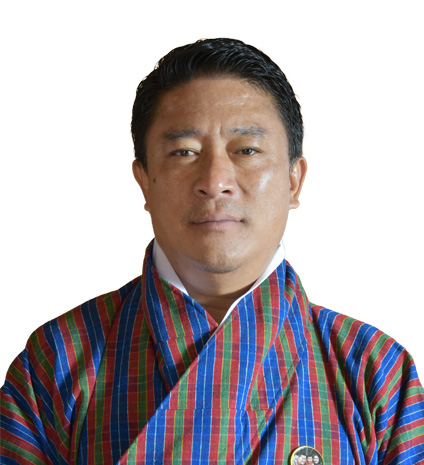
Commissioner
Anti-Corruption Commission of Bhutan

Team Leader of Corporate Crime and Foreign Bribery Team
Australian Federal Police

Anti-Corruption Coordinator & the Singapore Rep.
International Anti-Corruption Coordination Centre
This session will present an overview of current corporate liability frameworks in the Asia Pacific region. It also aims to provide a comprehensive examination of the challenges faced by prosecutors and investigators in prosecuting legal persons for corruption and related offences.
Speakers will share case studies and practical insights into the complexities associated with investigating and obtaining evidence from corporate defendants. Participants will be invited to join in the discussion and share details of their countries’ corporate liability models to further inform the discussion.

Legal Analyst
Anti-Corruption Division, OECD
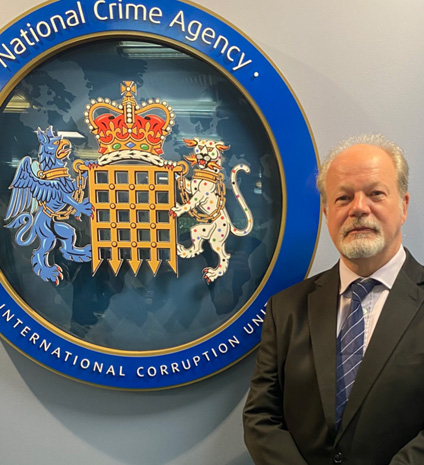
Head of International Corruption Unit
National Crime Agency

Head, Legal Division
Anti-Corruption Commission of Bhutan
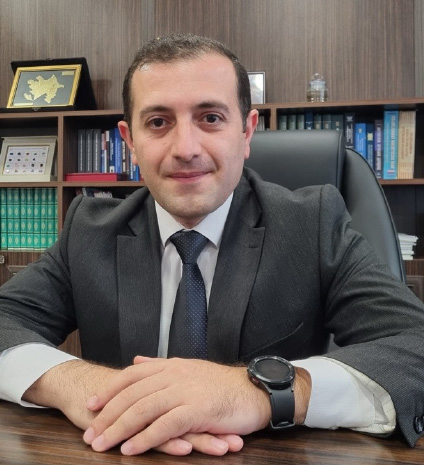
Head of Preventive Measures & Inquiry Department,
Prosecutor's Office of the Republic of Azerbaijan
In this break-out session, participants will engage in a discussion on current challenges in the implementation of NTR mechanisms, and their potential for increasing enforcement of economic offences while impacting corporate culture and incentivising voluntary disclosures. Participants will be invited to report back at the end of the session on their findings.

Director General
Department of Investigation
Anti-Corruption Commission of Bhutan

Legal Analyst
Anti-Corruption Division, OECD
Next steps by Ms Alejandra Tadeu, Legal Analyst, Anti-Corruption Division, OECD
Closing remarks by Mr. Gyeltshen, Director General, Anti-Corruption Commission, Royal Government of Bhutan

Director General
Department of Investigation
Anti-Corruption Commission of Bhutan

Legal Analyst
Anti-Corruption Division, OECD
Fighting corruption and promoting integrity in both the private and public sectors are critical to fostering an environment of trust and accountability, and conducive to sustainable and inclusive economic development. The OECD Recommendation on Public Integrity states that adherents should develop a strategic approach to mitigating public integrity risks in the public sector, most notably corruption. Some countries have opted for a single national integrity or anti-corruption strategy, although strategic integrity objectives may be located in several government documents owned by various authorities. An effective strategic approach for public integrity should be based on reliable evidence to identify key public integrity risks, developed in consultation with key stakeholders through existing government procedures for strategy development, and adequately implemented and monitored.

Head of Anti-Corruption and Integrity in Government Division
Directorate for Public Governance, OECD
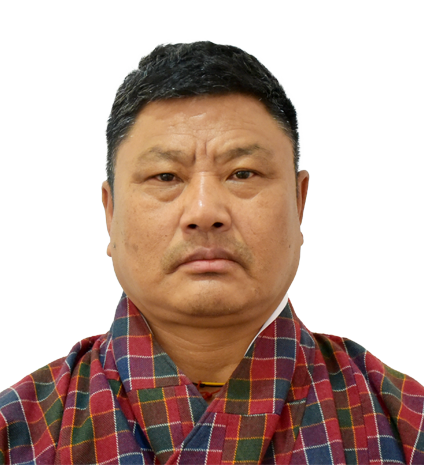
Commissioner
Anti-Corruption Commission

Anti-Corruption Analyst
KPK Indonesia

Deputy Programme Coordinator/Public Sector of the Community Relations Department

Executive Director of Prevention & Engagement Division
ICAC, Papua New Guinea

Chief Manager
Anti-Corruption Policy Monitoring Group
Anti-Corruption Agency, Kazakhstan
Ensuring that public officials act with integrity is essential to safeguarding the public interest. For public officials to be held accountable for their actions, they must act in a transparent manner. Disclosure of assets through mandatory declarations of assets and interests are a useful mechanism for anti-corruption authorities to assess whether an official has acquired unjustified wealth. Beneficial ownership transparency mechanisms can uncover complex corporate structures and reveal who really benefits from owning an asset.
This session will focus on the use of technology to promote transparency in asset declaration systems to identify illicit assets, and to uncover the proceeds of corruption and tackle abuse of corporate entities through the disclosure of beneficial ownership.

Policy Analyst and Manager for Asia-Pacific and Europe
OECD

Senior Legal Officer, Fraud Prevention and Anti-Corruption Branch
Australia Office of the Attorney General

Head of Asset Declaration Management Division
Department of Prevention & Education
Anti-Corruption Commission

Professional Standard Officer
Independent Commission Against Corruption

Governance Specialist
World Bank